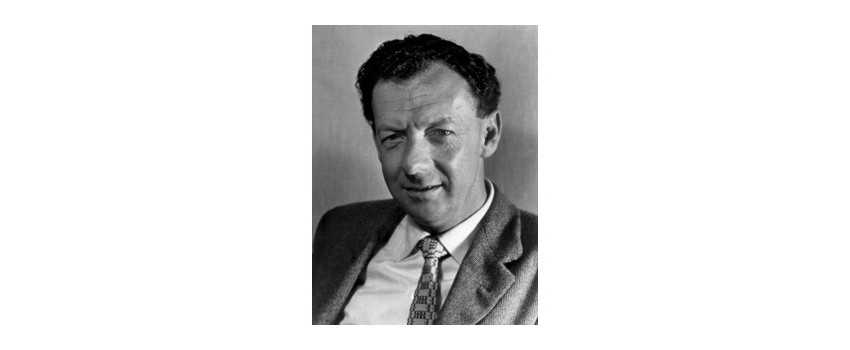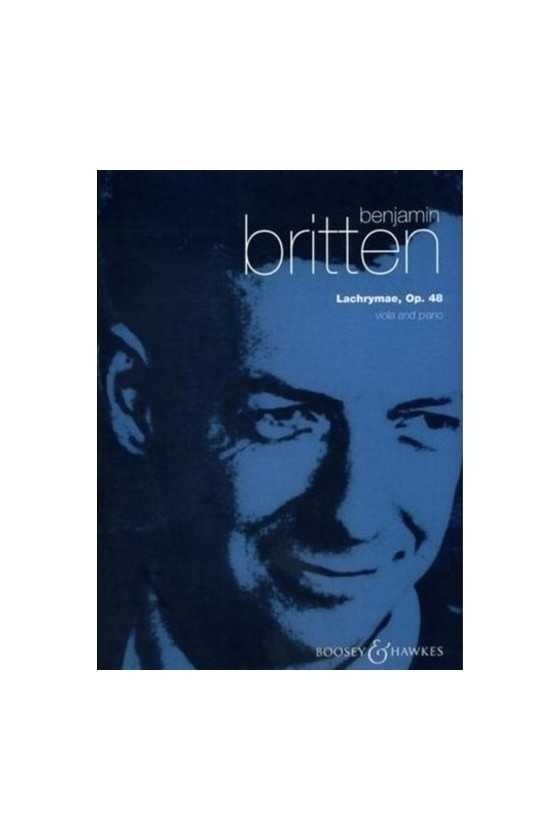- MenuBack
- Instruments
- Strings
- Violin Strings
- Violin Strings A-G
- Alphayue Violin Strings by Thomastik-Infeld
- Amber Violin Strings by Warchal
- Ametyst Violin Strings by Warchal
- Ascente Violin Strings by D'Addario
- Aurora Violin Strings by Larsen
- Brilliant Violin Strings by Warchal
- Brilliant Vintage Violin Strings by Warchal
- Chromcor Violin Strings by Pirastro
- Dominant Violin Strings by Thomastik-Infeld
- Dominant Pro Violin Strings
- Dynamo Violin Strings by Thomastik-Infeld
- Eudoxa Violin Strings by Pirastro
- Evah Pirazzi Violin Strings by Pirastro
- Evah Pirazzi Gold Violin by Pirastro
- Goldbrokat Violin E Strings
- Corelli Violin Strings
- E Strings - Various Brands
- Violin Strings H-O
- Helicore Violin Strings by D'Addario
- Hill Violin E String by W. E. Hill & Sons
- Infeld Blue Violin Strings
- Infeld Red Violin Strings
- Jargar Violin Strings
- Kaplan Violin Strings by D'Addario
- Karneol Violin Strings by Warchal
- Larsen Violin Strings
- Maestro Violin Strings
- Obligato Violin Strings
- Oliv Violin Strings
- Opal Titan Violin Strings
- Opal Gold Violin Strings
- Violin Strings P-Q
- Violin Strings R-Z
- Violin Strings A-G
- Viola Strings
- Viola Strings A-O
- Alphayue Viola Strings
- Ascente Viola Strings
- Dominant Viola Strings
- Eudoxa Viola Strings
- Evah Pirazzi Viola Strings
- Helicore Viola Strings
- Jargar Viola Strings
- Kaplan Viola Strings
- Larsen Viola Strings
- Larsen Virtuoso Soloist Viola Strings
- Maestro Viola Strings
- Obligato Viola Strings
- Oliv Viola Strings
- Opal Green Pro Viola Strings
- Viola Strings P-Z
- Viola Strings A-O
- Cello Strings
- Cello Strings A-E
- Cello Strings H-P
- Helicore Cello Strings
- Jargar Cello Strings
- Kaplan Cello Strings
- Larsen Cello Strings
- NS Design Electric Cello Strings
- Obligato Cello Strings
- Opal Gold Cello Strings
- Opal Titan Cello Strings
- Passione Cello Strings
- Permanent Cello Strings
- Perpetual Cello Original Strings
- Perpetual Soloist Cello Strings
- Piranito Cello Strings
- Precision Cello Strings by Thomastik-Infeld
- Prelude Cello Strings
- Prim Cello Strings
- Cello Strings Q-Z
- Double Bass Strings
- Double Bass Strings
- Belcanto Double Bass Strings
- Dominant Double Bass Strings
- Eudoxa Double Bass Strings
- Evah Pirazzi Double Bass Strings
- Helicore Double Bass Strings
- Kaplan Double Bass Strings
- Maestro Double Bass Strings
- NS Electric Double Bass Strings
- Obligato Double Bass Strings
- Perpetual Double Bass Strings by Pirastro
- Precision Double Bass Strings
- Prelude Double Bass Strings
- Spirocore Double Bass Strings
- Superflexible Bass Strings
- Double Bass Strings
- Bows
- Cases
- Accessories
- Learn - All Grades
- Beginner Methods A-N
- Abracadabra
- Adventures in Violinland
- The ABC's books
- All for Strings
- Artistry in Strings
- A Tune A Day
- Blackwell Books
- Colour Strings Books
- Edward Huws Jones
- Encore On Strings
- Essential Elements
- Flying Start for Strings
- L Fin Beginning Ensemble Series
- Katherine and Hugh Colledge
- Mary Cohen Books
- My First Pieces & My Next Pieces
- Nelson Books
- New Directions for Strings
- Perform
- Violin Sheet Music
- Composers Violin A-C
- Accolay, Jean Baptiste
- Achron, Joseph Yulyevich
- Albinoni, Tomaso
- Arne, Thomas Augustine
- Bach, Johann Sebastian
- Bartók, Béla
- Beethoven, Ludwig van
- Bloch, Ernest
- Beriot, Charles Auguste De
- Brahms, Johannes
- Bridge, Frank
- Bruch, Max
- Carse, Adam
- Campagnoli, Bartolomeo
- Cerulli, Bob
- Chausson, Ernest
- Chopin, Frédéric François
- Copland, Aaron
- Corelli, Arcangelo
- Corigliano, John
- Composers Violin D-G
- Dancla, Charles
- Debussy, Claude
- Delius, Frederick
- De Falla, Manuel
- Dinicu, Grigoraș Ionică
- Doflein, Elma
- Drdla, Franz
- Dvorak, Antonin
- Eccles, Henri
- Edwards, Ross
- Elgar, Edward
- Faure, Gabriel
- Finzi, Gerald
- Fiocco, Joseph Hector
- Franck, César-Auguste
- Gade, Jacob
- Guareschi, Giovannino
- Giazotto, Remo
- Górecki, Henryk
- Glazunov, Alexander
- Composers Violin H-K
- Composers Violin L-M
- Composers Violin N-T
- Perlman, Itzhak
- Paganini, Niccolò
- Power, James
- Prokofiev, Sergei
- Rachmaninoff, Sergei
- Ravel, Maurice
- Rieding, Oskar
- Rimsky-Korsakov, Nikolai
- Rode, Jacques Pierre Joseph
- Saint-Saens, Camille
- Sarasate, Pablo de
- Schumann, Robert
- Schubert, Franz
- Schradieck, Henry
- Seitz, Friedrich
- Shostakovich, Dmitri
- Sibelius, Jean
- Smetana, Bedrich
- Spohr, Louis
- Strauss, Richard
- Stravinsky, Igor
- Suk , Josef
- Svendsen, Johan
- Szelenyi, Istvan
- Szymanowski, Karol
- Tartini, Giuseppe
- Tchaikovsky, Pyotr Ilyich
- Telemann, Georg Philipp
- Piazzolla, Astor
- Composers Violin U-Z
- Popular Violin Sheet Music
- Other Violin Sheet Music
- Composers Violin A-C
- Viola Sheet Music
- Composers Viola A-C
- Accolay, Jean-Baptiste
- Anderson, Kenneth
- Bach, Johann Christian
- Bach, Carl Philipp Emanuel
- Bach, Johann Sebastian
- Bartók, Béla
- Bax, Arnold
- Beethoven, Ludwig van
- Bériot, Charles Auguste de
- Biber, Heinrich Ignaz Franz
- Bloch, Ernest
- Boccherini, Luigi
- Böhm, Karlheinz
- Bohm, Theobald
- Bowen, York
- Brahms, Johannes
- Bridge, Frank
- Britten, Benjamin
- Bruch, Max Felix
- Butterworth, Arthur
- Carter, Elliott
- Clarke, Rebecca
- Corelli, Arcangelo
- Corrette, Michel
- Composers Viola D-G
- Dale, Benjamin
- Dean, Brett
- Debussy, Claude
- Dittersdorf, Carl Ditters von
- Dodgson, Stephen
- Dounis, Demetrius Constantine
- Dvořák, Antonín
- Eccles, Henry
- Elgar, Edward
- Eliot, Norton, Charles
- Enesco, Georges
- Fauré, Gabriel
- Fiocco, Joseph-Hector
- Forbes, Watson
- Franck, Cesar
- Francoeur, François
- Fuchs, Lillian
- Gershwin, George
- Glazunov, Alexander
- Glinka, Mikhail
- Granados, Enrique
- Composers Viola H-K
- Handel, George Frideric
- Handoshkin, Ivan Evstafeivich
- Haydn, Joseph
- Hindemith, Paul
- Hoffmeister, Franz Anton
- Hovhaness, Alan
- Hubay, Jenő
- Hyde, Miriam Beatrice
- Jacob, Gordon
- Joachim, Joseph
- Jones, Matthew
- Kalliwoda, Johann Wenzel
- Kayser, Heinrich Ernst
- Kreisler, Fritz
- Kreutzer, Rodolphe
- Küchler, Ferdinand
- Jenkinson, Ezra
- Composers Viola L-M
- Composers Viola N-R
- Pachelbel, Johann
- Nyman, Michael
- Onslow, George
- Paganini, Niccolò
- Pergolesi, Giovanni Battista
- Piatigorsky, Gregor
- Piazzolla, Astor
- Prokofiev, Sergei
- Puccini, Giacomo
- Purcell, Henry
- Rachmaninoff, Sergei
- Ravel, Maurice
- Reger, Max
- Reinecke, Carl
- Richardson, Alan
- Rieding, Oskar
- Rimsky-Korsakov, Nikolai Andreyevich
- Rivier, Jean
- Rode, Jacques Pierre Joseph
- Composers Viola S-T
- Composers Viola U-Z
- Popular Viola Sheet Music
- Other Viola Sheet Music
- Composers Viola A-C
- Cello Sheet Music
- Composers Cello A-C
- Andriessen, Louis
- Bach, Johann Sebastian
- Bantock, Granville
- Bartók, Béla
- Beethoven, Ludwig van
- Bloch, Ernest
- Boccherini, Luigi
- Boëllmann, Léon
- Brahms, Johannes
- Bréval, Jean-Baptiste
- Bridge, Frank
- Britten, Benjamin
- Bruch, Max
- Caix d'Hervelois, Louis de
- Carse, Adam
- Cassadó, Gaspar
- Cirri, Giovanni Battista
- Clarke, Rebecca
- Composers Cello D-G
- Dare, Marie
- Davydov, Karl
- Debussy, Claude Achille
- Fesch, Willem de
- Dvorak, Antonin Leopold
- Eccles, Henry
- Elgar, Sir Edward
- Falla, Manuel de
- Faure, Gabriel-Urbain
- Ferguson, Howard
- Feuillard, Louis
- Foss, Lukas
- Franchomme, Auguste
- Francoeur, François
- Gabrieli, Giovanni
- Galliard, Johann Ernst
- Glazunov, Alexander
- Goens, Daniël van
- Goltermann, Georg
- Guymer, Ingrid
- Granados, Enrique
- Gounod, Charles François
- Composers Cello H-K
- Composers Cello L-M
- Composers Cello N-R
- Composers Cello S-T
- Saint-Saëns, Camille
- Sammartini, Giuseppe
- Sassmannshaus, Kurt
- Schubert, Franz
- Schumann, Robert Alexander
- Sculthorpe, Peter
- Senaillé, Jean Baptiste
- Shostakovich, Dmitri
- Sibelius, Jean
- Squire, William Henry
- Strauss, Richard
- Stravinsky, Igor
- Tartini, Giuseppe
- Tchaikovsky, Pyotr Ilyich
- Telemann, Georg Philipp
- Trowell, Arnold
- Composers Cello U-Z
- Popular Cello Sheet Music
- Other Cello Sheet Music
- Composers Cello A-C
- Play Together
- School Orchestra A-H
Britten, Benjamin
Benjamin Britten (22 November 1913 – 4 December 1976) was a prominent British composer of the mid-twentieth century, whose operas were regarded as the best English operas since Henry Purcell's in the seventeenth century. He was a fantastic pianist and conductor as well.
Britten started composing as a youngster and studied for many years under composer and instructor Frank Bridge when he was 12 years old. Later, he looked at the Royal College of Music in London under John Ireland and Arthur Benjamin, and while there, he wrote the choral variations A Boy Was Born (1933; revised, 1958). He subsequently went on to work as a composer for radio, theater, and film, where he met W.H. Auden, a poet. His string orchestra work Variations on a Theme of Frank Bridge earned him worldwide recognition in 1937.
He lived in the United States from 1939 to 1942, when his first theatrical piece, the operetta Paul Bunyan (1941; libretto by Auden), was presented. Britten's opera Peter Grimes (1945; text by M. Slater after George Crabbe's poem The Borough) was commissioned by the Koussevitzky Foundation, putting him at the forefront of 20th-century opera composers. The Rape of Lucretia (1946); the comic Albert Herring (1947); Billy Budd (1951; after Herman Melville); Gloriana (1953; written for Queen Elizabeth II's coronation); The Turn of the Screw (1954; after Henry James); A Midsummer Night's Dream (1960); Owen Wingrave (television, 1971); and Death in Venice are among his later operas (1973; after Thomas Mann).

2 products.
Boxed:
Sticky Header:
Sticky Add To Cart
Sticky Footer:
Font:


